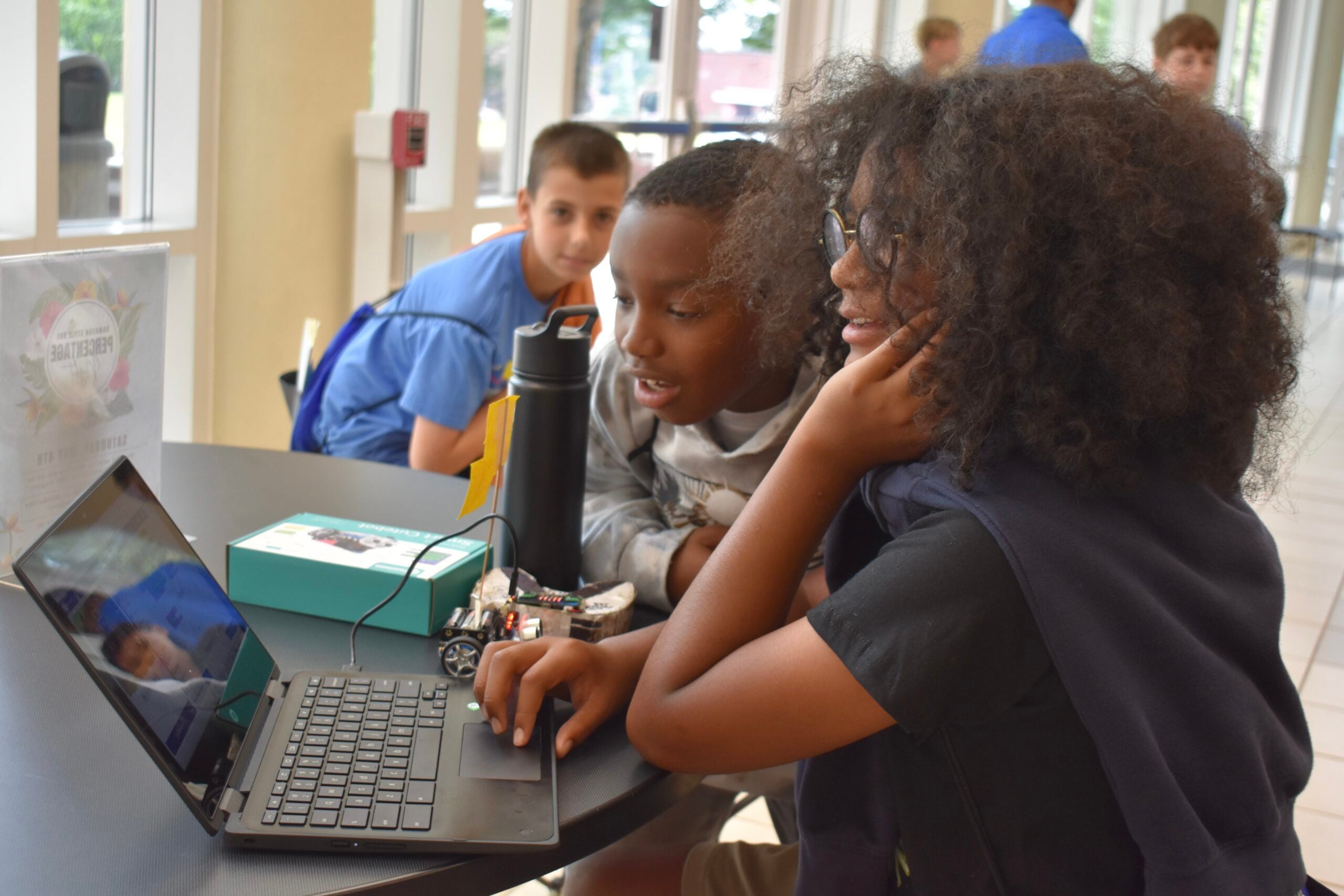Augusta University once again opened its doors on the Summerville Campus from June 24-28 to interest local children in the importance of computer and cyber sciences by participating in the VICEROY Kids Camp.
Celebrating its third year, VICEROY camp – otherwise known as the Virtual Institutes for Cyber and Electromagnetic Spectrum Research and Employ – is an extension of AU’s college program and offers children a variety of lessons and activities.
With almost 50 attendees from across the Greater Augusta area, ranging from fourth to eighth grade, Camp VICEROY freely teaches children about cybersecurity, cyber ethics, programming, how to use micro:bits to build electronics, programming basics and more.
“They learn about password length and how to protect their accounts online … and we’re trying to get them used to how to convert instructions for a computer to code,” said Camp Director and university professor Michael Nowatkowski.
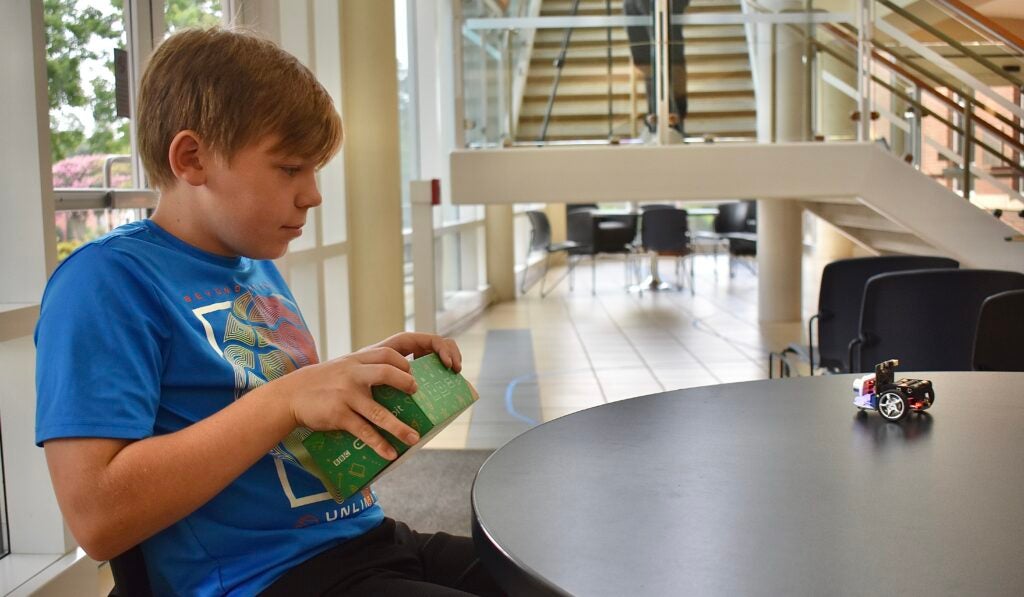
Celebrating its third year, Nowatkowski said VICEROY helped children develop computational thinking through algorithm exposure and figuring out how computers function by working on a micro:bit.
Depending on a kid’s skill and interest, camp counselors said the micro:bit can be programmed into a step counter, an alarm clock and so much more.
“It’s very interactive. It’s got push buttons, blinking lights, a little microphone and speakers,” he said. “We just want to get the kids excited about it.”
New to camp this year, Nowatkowski said participants were also taught how to program different micro:bits to communicate with one another, allowing campers to control the small object – similarly to a remote toy car – and race their micro:bits against one another for an ultimate racing showdown on Friday.
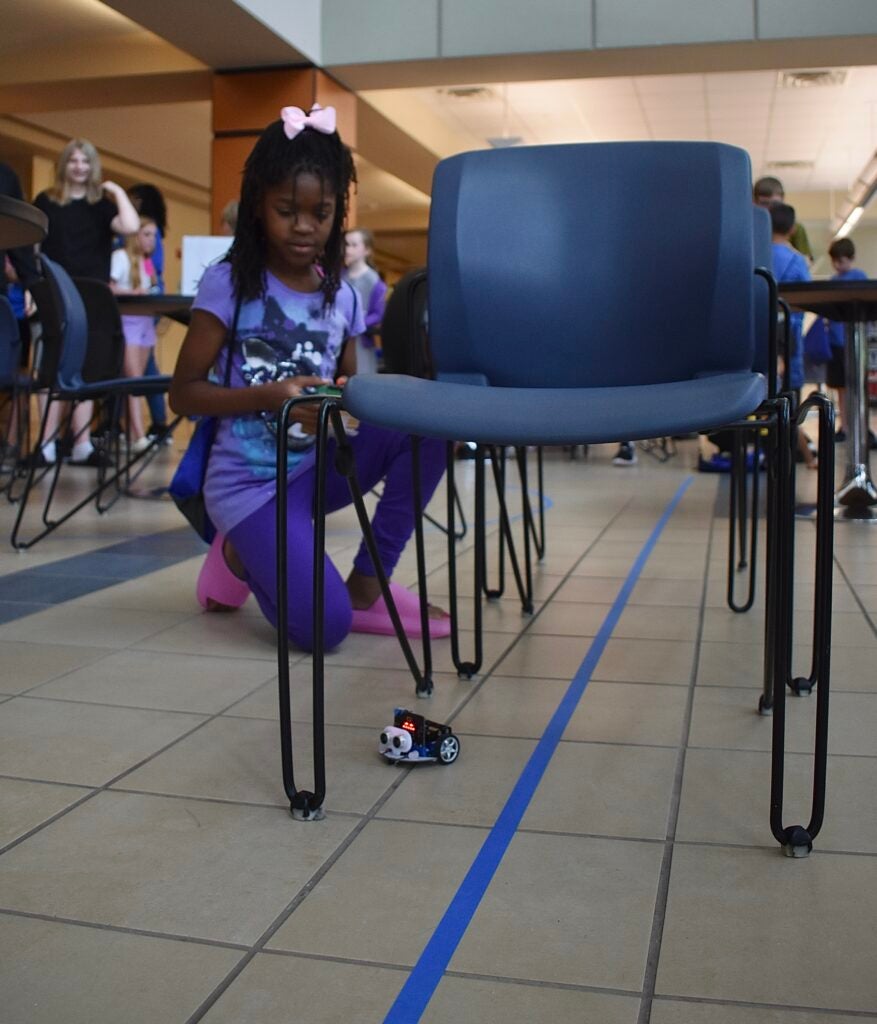
“They seem to really be enjoying that,” he said.
Experienced counselor Xavier Mitchell said he thought VICEROY was extremely significant to the community because it focused on teaching campers how to protect their personal information when surfing the web.
“Internet security – things like coding – it’s very important to learn even if you’re not going into the field, because people get hacked a lot,” he said. “You need to have that foresight to acknowledge that threat.”
Throughout the week, Mitchell said he had the privilege of guiding those more advanced with coding and challenging and exploring their individual “programming mindset.”
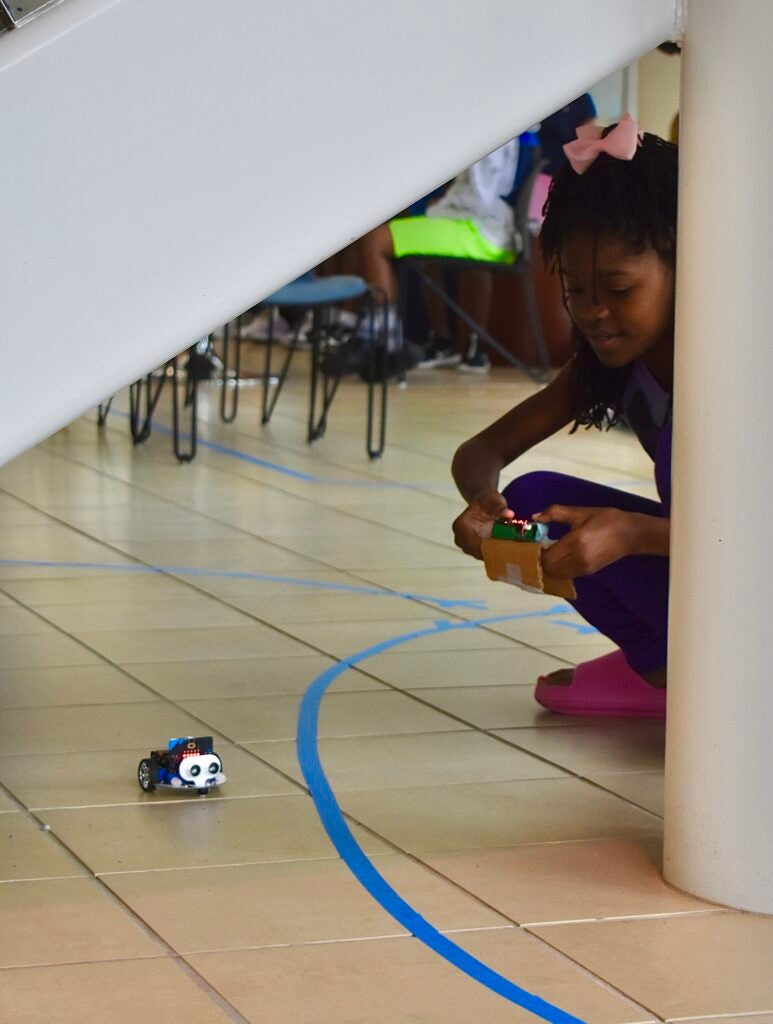
“They have this period of trial and error … and it’s great to see these kids kind of grit through it,” he said. “That’s a good mindset to have because the common thing I will see in college students is discouragement when they get something wrong or something doesn’t work, but [the campers] power through it.”
Most of all, Mitchell was impressed and proud to see his group of campers tutor the younger and less experienced coders, because it showed a sign of maturity and drove home a workplace normal for the field of cybersecurity.
“It was great to see them explain how their thought process worked and how they troubleshoot,” he said. “I think it is very important because computer fields require a lot of teamwork, so for them to develop that early on is very useful.”
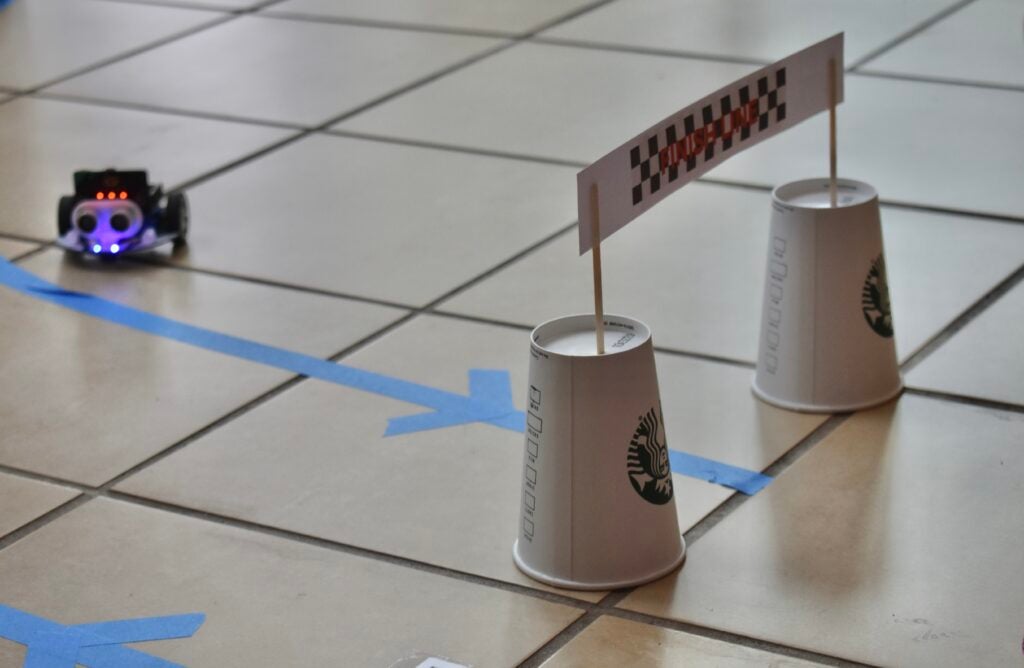
Camper Gabriel Johnson, a homeschooled rising eighth grader, said he learned several new coding tricks and tips that furthered his skills and interest.
“I learned a lot of different coding things like algorithms and Caesar circles,” he said. “It was a really good experience – very educational.”
Another fellow camper Mason Angllin, a rising A.R. Johnson Magnet School sixth grader, said he believed kids should learn coding because it powers a multitude of devices that people use in their day-to-day routine.
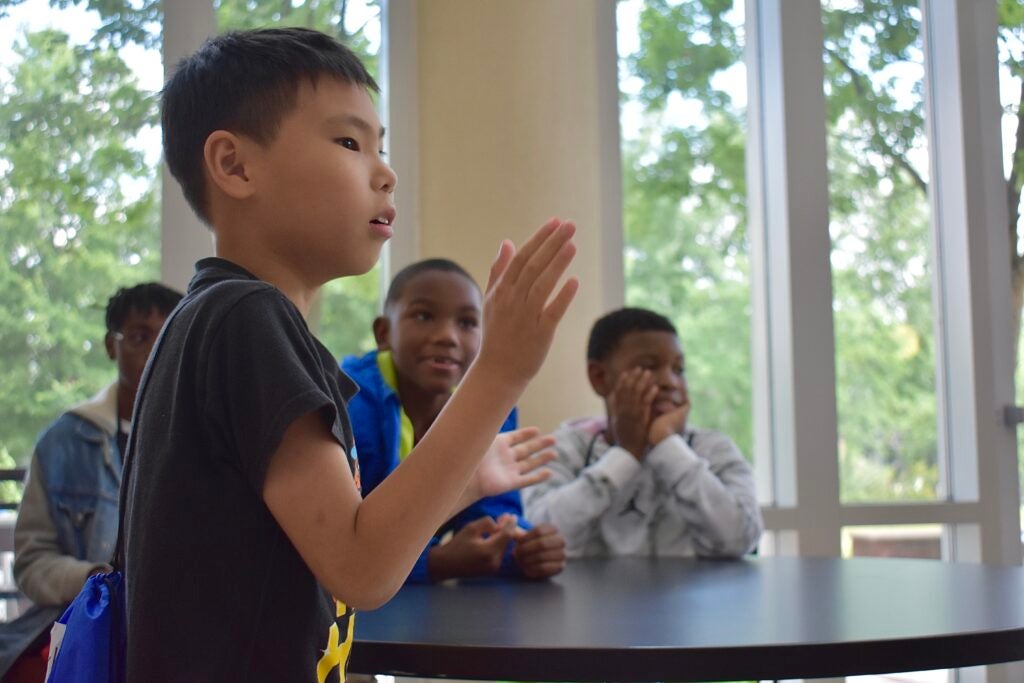
“Without coding most computers, iPads and phones wouldn’t work, because there wouldn’t be anything to run them and they would just be a blank screen,” he said.
In the future, Angllin said he would be interested in pursuing a job that focused on coding robots.
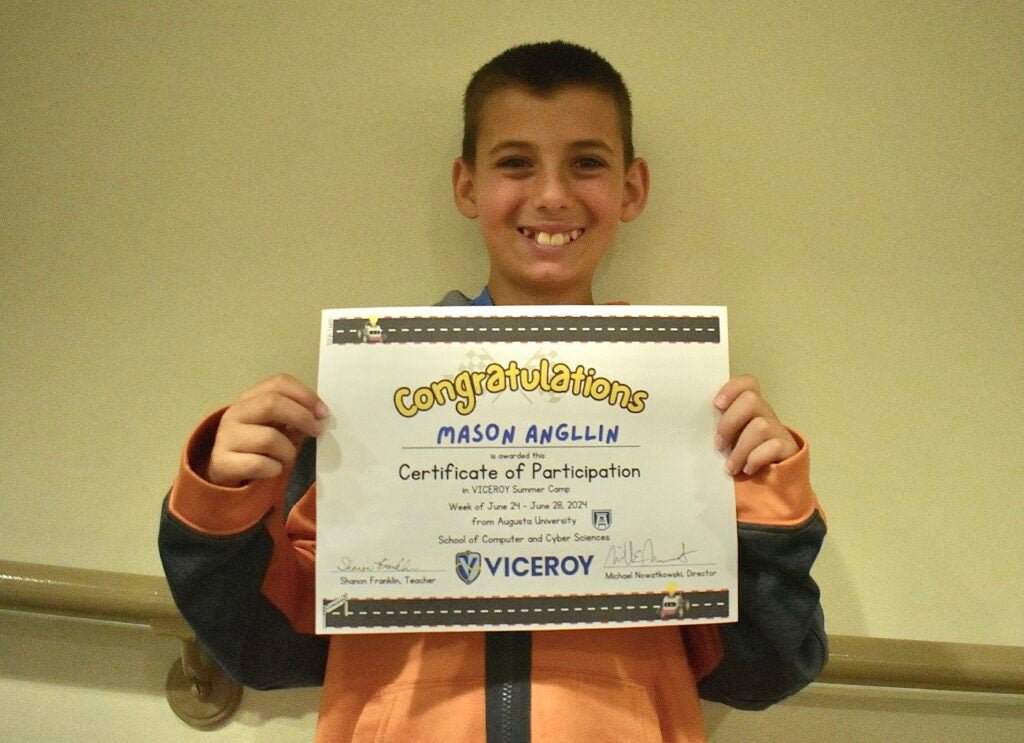
At the end of the week, after learning to program on Chromebooks, Nowatkowski said all campers take home their very own micro:bit to continue programming and learning on their own.
Depending on a kid’s skill and interest, camp counselors said the micro:bit can be programmed into a step counter, an alarm clock and so much more.
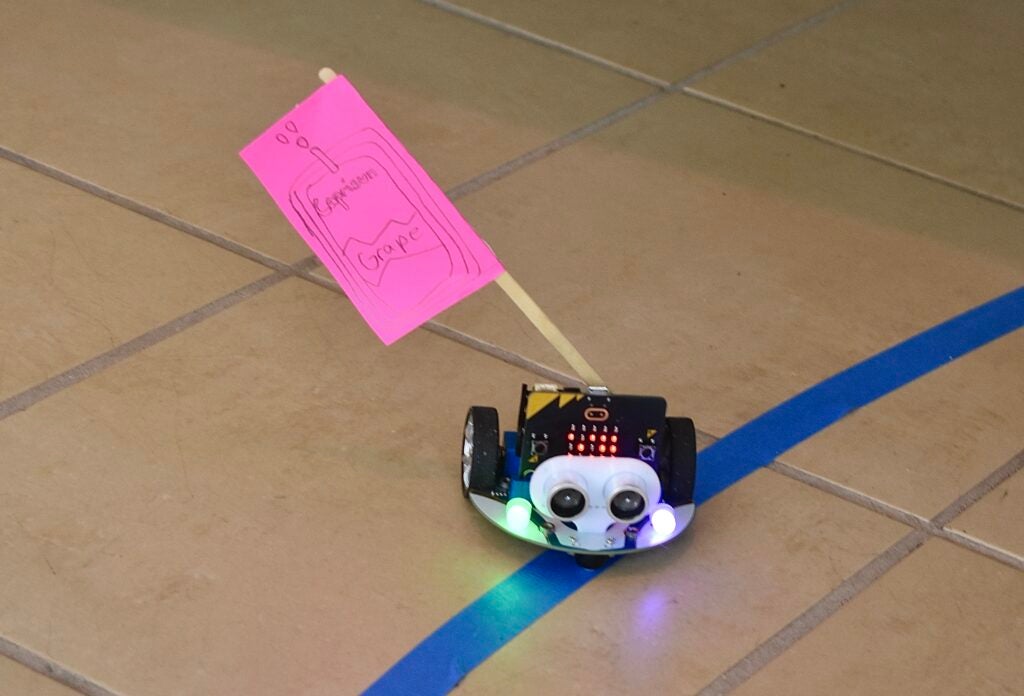
Prior to dismissal on the final day of VICEROY, participating children are encouraged to keep coding and improving their skills, even if they later in life choose not to pursue a career in computer sciences.
To find out more about the VICEROY Kids Camp, visit: https://web2.augusta.edu/ccs/viceroy/kids-camp.php

